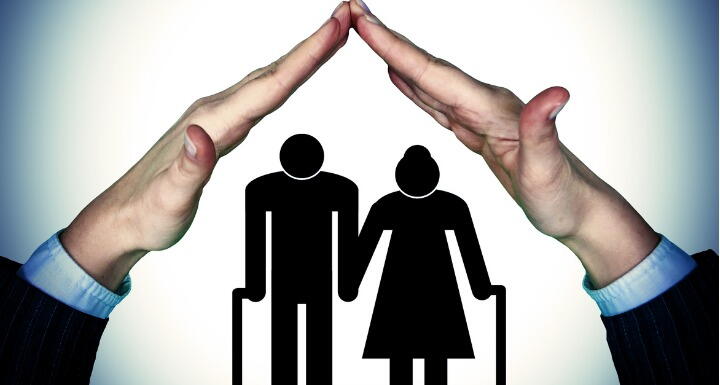The Law on Nursing Home Injuries in North Carolina

There are more than 15,600 nursing homes in the United States, according to the most recent statistics.
And more than 1.3 million residents live in these facilities. With reports of COVID-19 in certain nursing homes and “stay at home” orders in effect, many of these 1.3 million nursing home residents are isolated from their families. The nurses, managers, and other workers at these nursing homes are working incredibly hard to protect vulnerable residents during these trying times.
Indeed, most nursing homes provide excellent care to elderly or disabled individuals. Sadly, however, there sometimes are injuries that happen at these facilities, including from inadequate care. Each year thousands of individuals are injured in nursing homes, including in North Carolina. When injuries occur because of the negligence of a nursing home’s medical provider or other staff, the injured person or their family may have a legal claim. This article provides an introduction to such legal claims for nursing home injuries in North Carolina.
Nursing Homes, Assisted Living Facilities, and Other Types of Care
Numerous different terms are used to describe facilities providing heightened care to elderly or disabled individuals. Assisted living facilities, for instance, are retirement communities for residents who need help with certain activities of daily living—from meal preparation to transportation, to bathing or other services. Nursing homes, or skilled nursing facilities, provided a more heightened level of care.
In particular, nursing home residents need more serious medical care than can be provided in assisted living facilities. In nursing homes, nurses and other skilled medical staff care for elderly individuals with more serious medical issues, individuals requiring rehabilitation, and others needing to live in facilities with access to more specialized medical care. Such care may include IV medications, wound care, memory care, and tracheotomy/ventilator care.
While this article focuses primarily on nursing homes, injuries can occur in any type of facility providing care to residents, including assisted living facilities. And, when injuries occur because of someone else’s negligence, there can be a valid legal claim for damages.
Injuries That May Occur
Many different types of injuries can occur in nursing homes. In more severe cases, death sadly may result. Falls are a very common source of injury. In fact, the CDC estimates that 16% of nursing home residents will experience a fall in a given year. Other types of injuries can occur from improper medical care/medical malpractice, unsanitary living conditions, medication errors, and overdoses, bedsores, infections, inadequate nourishment, failure to feed those who are unable to adequately feed themselves, or elder abuse, among other possibilities.
Additionally, there can be cases involving elopement/wandering when patients suffering from temporary, medication-induced confusion or longer-lasting dementia/Alzheimer’s are allowed to leave the facility alone through improper supervision or security failures, and then sustain serious injuries or even death due to falls, wandering into traffic, or hypothermia/weather exposure. Another frequent issue is failure to timely recognize an illness or deterioration in condition and timely transport the patient to their physician or hospital for required medical care.
Inadequate staff to patient ratios also can frustrate families, and even lead to injury. Nursing homes are required to have specifics numbers and types of staff at all times. Failure to comply with these minimum standards is dangerous and can lead to inadequate care and patient neglect.
It also is vitally important that nursing homes do adequate background and criminal checks on their employees to ensure they are fit for the job. It is equally important to monitor employee performance during their employment and to terminate employees who consistently fail to meet standards. Failure to do so can lead to patient injury as a result of improper/substandard care.
Finally, deteriorating mental health and/or medication interactions can cause patients to exhibit violent, dangerous, and sometimes inappropriate behavior, including sexual behavior. It is imperative that staff closely monitor all residents and take necessary actions when a patient/resident exhibits such behaviors in order to protect the safety of all other residents. Failure to do so can cause serious injury to other residents. Some of the saddest situations occur when vulnerable residents become victims of sexually inappropriate behavior or sexual abuse (including, on rare occasions, by staff).
The above are very unfortunate situations which, sadly, can and do occur in nursing homes. Other types of injuries also are possible.
Liability and Damages
In order for a nursing home to be liable for injuries to a resident, those injuries must occur because of someone’s negligence. When one fails to act with reasonable care, and their actions cause injury, that party is deemed to be negligent. Thus, if a caregiver or staff member in a nursing home is not properly careful in caring for a resident and injury results, then the nursing home is liable for the damages that occur.
Because of the skilled medical care involved, nursing home cases often involve medical malpractice claims. In order to pursue a medical malpractice claim, an injured party must allege the following legal elements: (1) the applicable standard of care; (2) breach of the standard of care by a medical provider; (3) that the injuries suffered were “proximately caused” by the breach; and (4) damages.
The standard of care is the proper approach, practice, or procedure for a particular medical situation that is accepted by the medical community in a particular geographic location. Breaching the standard of care means failing to provide medical treatment consistent with that particular standard. If this failure causes actual injury to a nursing home resident, the injured individual (or their family in wrongful death cases) is entitled to damages under the law.
Besides proving that a medical provider breached the standard of care, an injured party also may argue that a medical provider in a nursing home either (1) failed to use his or her best judgment in the treatment or care, or (2) failed to use reasonable care and diligence in the application of his or her knowledge and skill to a patient’s care.
Whether the nursing home claim is for “ordinary negligence” or “medical malpractice,” it is then up to the injured individual, or their attorney, to prove damages. Types of damages include compensatory damages and punitive damages. Compensatory damages are those directly resulting from the injuries sustained. These include medical bills, as well as “non-economic” damages such as pain and suffering, which are more subjective in their determination.
Punitive damages are intended to punish wrongful conduct and can only be sought when there are aggravating factors, such as willful or wanton conduct. If necessary, the injured party can file a lawsuit, thereby asking the court system (and a jury) to determine if there is liability and the appropriate amount of damages.
Conclusion
Sadly, thousands of injuries occur every year in nursing homes. If you or a family member believes you have a personal injury claim involving a nursing home or similar care facility, the best course of action is to contact an attorney as soon as possible.
—
© 2022 Ward and Smith, P.A. For further information regarding the issues described above, please contact Lynwood P. Evans or Jeremy M. Wilson.
This article is not intended to give, and should not be relied upon for, legal advice in any particular circumstance or fact situation. No action should be taken in reliance upon the information contained in this article without obtaining the advice of an attorney.
We are your established legal network with offices in Asheville, Greenville, New Bern, Raleigh, and Wilmington, NC.
Featured News
View All
